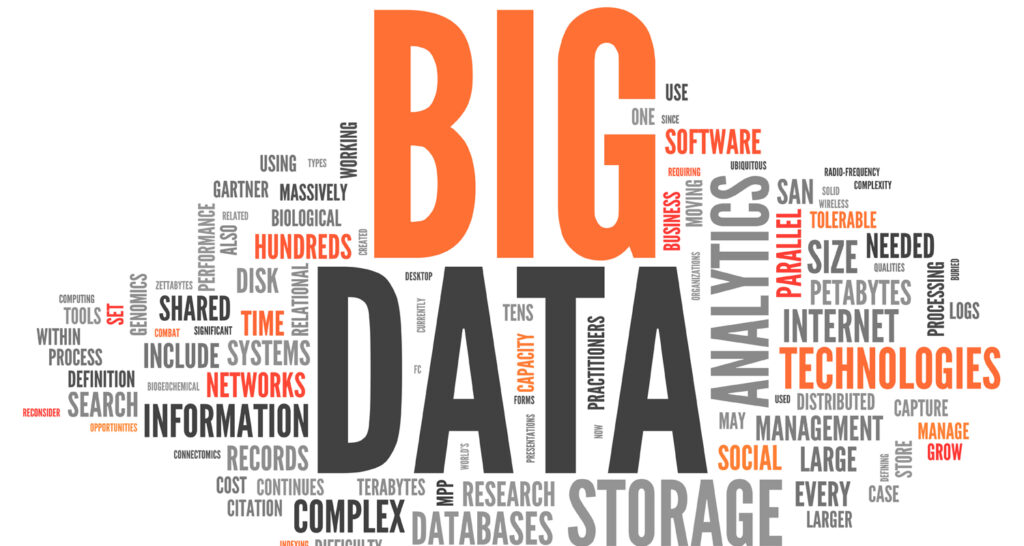In an increasingly digitized world, the concept of big data has transformed the landscape of information gathering, analysis, and application. With the proliferation of connected devices and online platforms, vast amounts of data are generated every second, offering unprecedented opportunities for insights and innovation. However, amidst this data deluge lie complex ethical considerations. From concerns about privacy and consent to issues of algorithmic bias and discrimination, the ethical implications of big data are profound. In this blog, we delve into the multifaceted realm of big data ethics, exploring the ethical dilemmas surrounding its collection, analysis, and utilization, and advocating for the protection of individual privacy rights in the digital age.
Introduction to Big Data

Big data refers to the massive volume of structured and unstructured data generated from various sources, including social media, sensors, mobile devices, and online transactions. Its significance lies in its potential to provide valuable insights and enable informed decision-making across diverse sectors such as healthcare, finance, and marketing. By analyzing large datasets, organizations can identify patterns, trends, and correlations that were previously inaccessible, leading to enhanced efficiency, innovation, and competitive advantage. However, the sheer scale and complexity of big data present challenges related to storage, processing, and analysis. Moreover, ethical concerns arise regarding issues like data privacy, security, and consent. Despite these challenges, big data continues to revolutionize industries and drive technological advancements, reshaping the way we understand and interact with information in the digital age.
The Ethical Implications of Big Data

The ethical implications surrounding big data encompass a range of concerns that stem from the collection, analysis, and utilization of vast amounts of data. Key considerations include ensuring informed consent from individuals whose data is being collected, processed, and analyzed. Transparency in how data is collected, stored, and used is essential to maintaining trust and accountability. Additionally, safeguarding privacy rights and protecting sensitive information from unauthorized access or misuse are paramount. Challenges arise regarding the potential for biases in algorithms and decision-making processes, which can perpetuate discrimination and inequality. As big data technologies continue to advance, it is crucial to address these ethical considerations proactively, implementing robust policies, regulations, and ethical frameworks to guide responsible data practices. This approach fosters a balance between leveraging the benefits of big data analytics while upholding individuals’ rights and ethical principles in the digital age.
Privacy Concerns in the Digital Age

Privacy concerns in the digital age have become increasingly prominent due to the proliferation of big data analytics. Individuals are becoming more aware of the vast amounts of personal information collected, stored, and analyzed by various entities, raising concerns about data privacy and security. The misuse or unauthorized access to personal data can have significant consequences, including identity theft, financial fraud, and violations of individuals’ rights to privacy. Furthermore, the aggregation of disparate datasets in big data analytics poses risks of re-identification, where supposedly anonymized data can be linked back to individuals, compromising their privacy. As such, safeguarding privacy rights in the age of big data requires robust data protection regulations, transparent data handling practices, and user-centric privacy controls. Additionally, empowering individuals with greater control over their data and promoting awareness of privacy risks can help mitigate concerns and foster a more ethical and privacy-respecting approach to big data analytics.
Regulatory Frameworks and Compliance

Regulatory frameworks play a crucial role in addressing privacy concerns and ensuring the ethical use of big data. Regulations like the General Data Protection Regulation (GDPR) in Europe and the California Consumer Privacy Act (CCPA) in the United States aim to empower individuals with greater control over their data and hold organizations accountable for responsible data handling practices. These frameworks impose requirements on entities that collect, process, and store personal data, including obligations to obtain explicit consent for data collection, provide transparent disclosures about data processing activities, and implement robust security measures to protect data against unauthorized access or breaches. Compliance with these regulations necessitates organizations to adopt privacy-by-design principles, conduct privacy impact assessments, and appoint data protection officers to oversee compliance efforts. By adhering to regulatory requirements and adopting privacy-centric practices, organizations can mitigate privacy risks and build trust with consumers while fostering a culture of ethical data stewardship.
Ethical Data Practices

Ethical data practices are essential for maintaining trust and integrity in the use of big data. Organizations should prioritize principles such as data minimization, which involves collecting only the data necessary for specific purposes, thereby reducing the risk of unauthorized access or misuse. Anonymization techniques can further protect individuals’ privacy by removing personally identifiable information from datasets, while still allowing for meaningful analysis. Additionally, empowering users with control over their data through transparent consent mechanisms and robust privacy settings fosters a sense of agency and respect for individuals’ privacy preferences. By adopting these best practices, organizations can demonstrate their commitment to ethical data stewardship, mitigate potential risks associated with data privacy breaches, and enhance trust with their customers and stakeholders. Ultimately, prioritizing ethical considerations in data practices ensures that the benefits of big data analytics are realized responsibly and sustainably.
Transparency and Trust

Transparency plays a crucial role in fostering trust and accountability in the use of big data. Organizations should be transparent about their data collection practices, including the types of data collected, the purposes for which it is used, and any third parties involved in data processing. Clear and accessible privacy policies, informed consent mechanisms, and user-friendly interfaces for managing data preferences can empower individuals to make informed choices about their data and enhance trust in the organization’s data practices. Additionally, organizations should prioritize accountability by implementing robust data governance frameworks, conducting regular audits, and appointing data protection officers to oversee compliance with regulations and ethical standards. By prioritizing transparency and accountability, organizations can build trust with their customers, stakeholders, and the broader community, fostering a culture of responsible data stewardship and promoting ethical data practices in the digital age.
Social Justice and Equity

Big data analytics has the potential to exacerbate existing social justice issues, as it can perpetuate algorithmic bias, discrimination, and inequality. Biases present in datasets, such as historical biases or systemic inequalities, can be amplified by algorithms, leading to unfair outcomes for certain groups. For example, biased algorithms in hiring processes may disadvantage marginalized communities, perpetuating socioeconomic disparities. Additionally, the unequal distribution of data access and digital literacy can further exacerbate disparities in the benefits derived from big data analytics. Addressing these challenges requires a multifaceted approach that includes data governance policies to mitigate bias, transparency in algorithmic decision-making processes, and efforts to promote diversity and inclusion in data collection and analysis. By prioritizing social justice and equity considerations in big data analytics, organizations can work towards creating more equitable and inclusive outcomes for all members of society.
Emerging Technologies and Future Considerations

As emerging technologies like artificial intelligence (AI), machine learning, and facial recognition systems become increasingly integrated into society, they bring forth new ethical challenges regarding data privacy, autonomy, and accountability. These technologies have the potential to infringe upon individuals’ rights, such as the right to privacy and the right to non-discrimination. For instance, facial recognition systems may lead to mass surveillance and privacy violations if deployed without adequate safeguards. Moreover, AI algorithms can perpetuate biases present in training data, resulting in unfair outcomes for certain demographics.
To address these challenges, it is crucial to prioritize ethical considerations in the development and deployment of emerging technologies. This includes promoting transparency and accountability in algorithmic decision-making, ensuring fairness and equity in AI systems, and implementing robust data protection measures. Additionally, interdisciplinary collaboration between technologists, policymakers, ethicists, and other stakeholders is essential to navigate the complex ethical landscape of emerging technologies and mitigate potential harms while maximizing their societal benefits.
